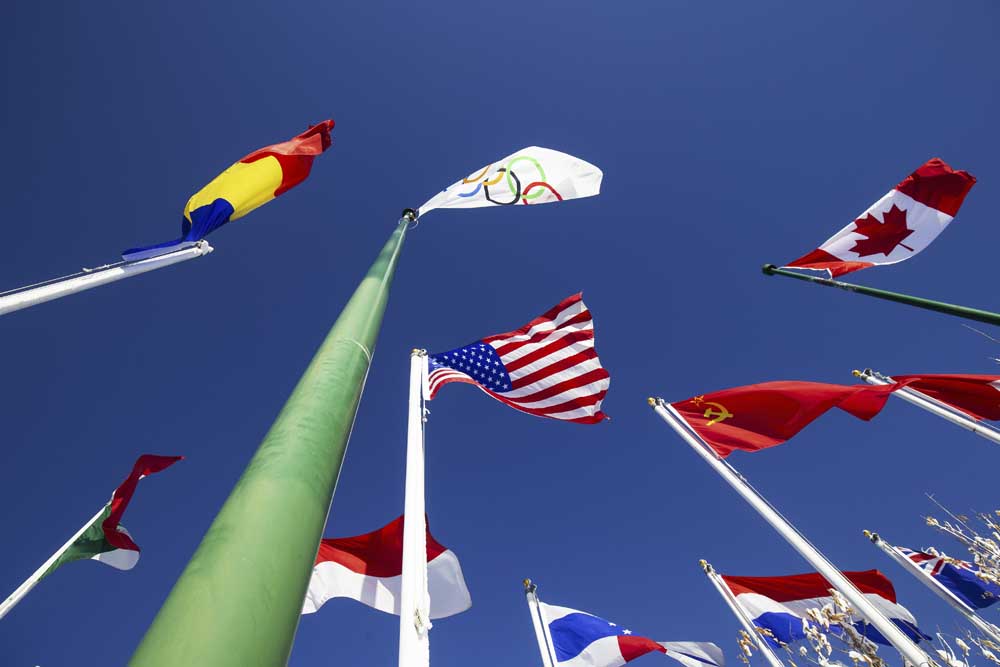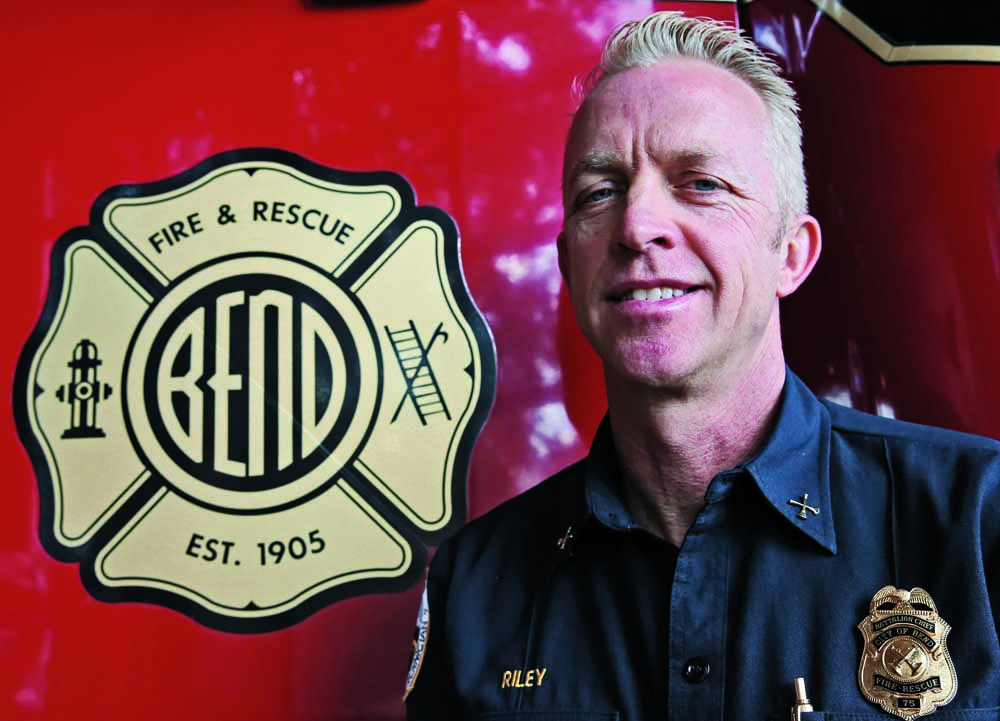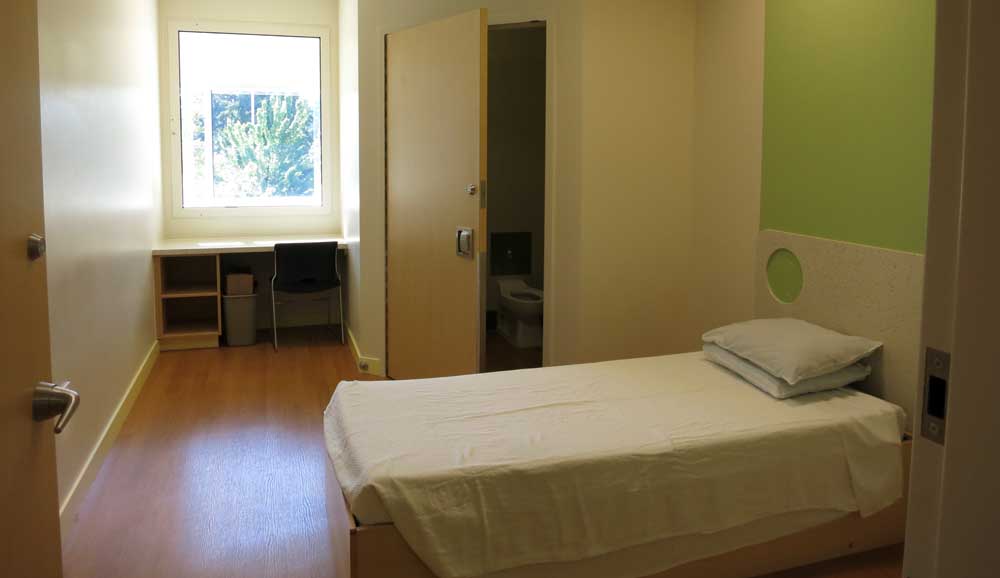Does Calgary want the Winter Games?
Published 12:00 am Tuesday, November 13, 2018

- The Olympic flag flies with flags of the world at Canada Olympic Park in Calgary, Alberta, Canada, Nov. 7, 2018. The Canadian city is set to vote on whether to bid for the 2026 Games. Norway and Austria and Switzerland have already passed. (Todd Korol/The New York Times)
CALGARY, Alberta — Hobbled by a reputation for gross expense and corruption, the International Olympic Committee has become a beggar, shuffling from nation to nation, shaking its cup and asking if anyone might be interested in bidding on the 2026 Winter Games.
The Norwegians, the greatest of all Winter Olympic countries, found too many expenses and too much potential environmental damage. Pass. In Innsbruck, Austria, which hosted the 1976 Winter Games, the burghers shook their heads and voted no. A canton in Switzerland, home of the IOC, voted to bolt the door.
So Olympic officials turned their eyes to Calgary, the lively Canadian city that hosted the 1988 Winter Games. They murmured softly and smiled sweetly and asked: Might you like to bid?
Calgary officials nodded, yes, they might like that indeed.
And the IOC officials, well-heeled princelings beneath their tattered robes, smiled so broad.
This is a city brimming with optimism. Mayor Naheed Nenshi is a quick-witted urban wonk, and the city has a diverse and educated population. Its most recent public work is a breathtakingly beautiful public library that arrived on time and under budget. Nenshi walked into a debate last week and a later interview with me intent on selling all on his vision before a referendum Tuesday on whether to take the plunge.
“The International Olympic Committee does worry me and keep me up a bit at night,” Nenshi said. “But this is an outstanding deal for Calgary.”
Nenshi and his supporters propound Canadian exceptionalism: We would stage these games as we do everything, which is to say on budget and without corruption or toleration of doping.
You are tempted to root even as you wince. So many optimistic cities and nations have walked this path only to tumble down the Olympic stairs of inflated hopes, spiraling costs and corruptions’ bruises.
Quite a few in Calgary share my skepticism. This city will stage a plebiscite Tuesday on whether to submit a bid, and boosterish sorts admit to jumping nerves before the referendum.
“There are too many unanswered questions and an incredible amount of risk,” the councilor, Evan Woolley, said at a public debate on the plebiscite.
No Olympics since 1968 has met its budget. Vancouver went a modest 13 percent over (although its athletes’ village went belly up afterward at a cost of $100 million), while other cities had grand mal seizures. London and Sochi ran over by 76 percent and 280 percent.
When Tokyo signed on for the 2020 Summer Games, officials sounded remarkably like those in Calgary. They promised to deliver a frugal penny- and pound-wise Olympics for about $7.3 billion.
Then they adjusted estimates to $12 billion. Of late, the number has soared to $25 to $30 billion. Oops.
The IOC has grown edgy at the lack of suitors seeking to host games and proclaimed itself ready to shed the tux and don the hair shirt. It introduced a “game changer” called the New Normal, which encourages construction of fewer new stadiums and would share more dollars with host cities.
So Calgary would, for the most part, refurbish facilities used in the 1988 Olympics and focus construction on a much-desired new winter field house.
That said, Calgary officials take a parochial, Calgary-centric view of costs, the details of which were being worked on in the days before the vote. Nenshi said Calgary’s share would come in at a touch more than $400 million. The provincial Alberta government would fork over $700 million, and the federal government in Ottawa has promised a barrel of money, too.
“This is almost a tax rebate,” the mayor said.
This would be so if we assume tax dollars not gathered in Calgary fall from the sky like snow. Alberta is hard-pressed by the same slump in oil revenues, and money spent renovating curling and skating rinks could mean less money to build and repair schools, roads and parks.
More broadly, Calgary officials speak of the Olympics as a defibrillator for local spirits grown gloomy. The games offer two weeks of free global advertising.
David Finch, a professor specializing in marketing, participated in that recent debate and wove a splendid web. “We’ve got 30 years of data that shows they will come,” he said. “It is the equivalent of hosting 21 Super Bowls.”
I called Brad Humphreys, an economics professor at West Virginia University who studies Olympic finances. He acknowledged that the Olympics make you feel good and it is a two-week advertisement.
“There is a lot of temporary employment and no evidence of substantial economic impact,” Humphreys said. “The very fact the IOC is desperate to force cities to compete to host the games is to extract as much benefit as they can for themselves.”
Nenshi acknowledges that the Olympics are no economic silver bullet. But he is convinced Calgary can game the gamers: “I believe Calgary can host the cleanest, most cost-effective games in history. If that’s not what they want, we’ll say, ‘Thank you.’”







